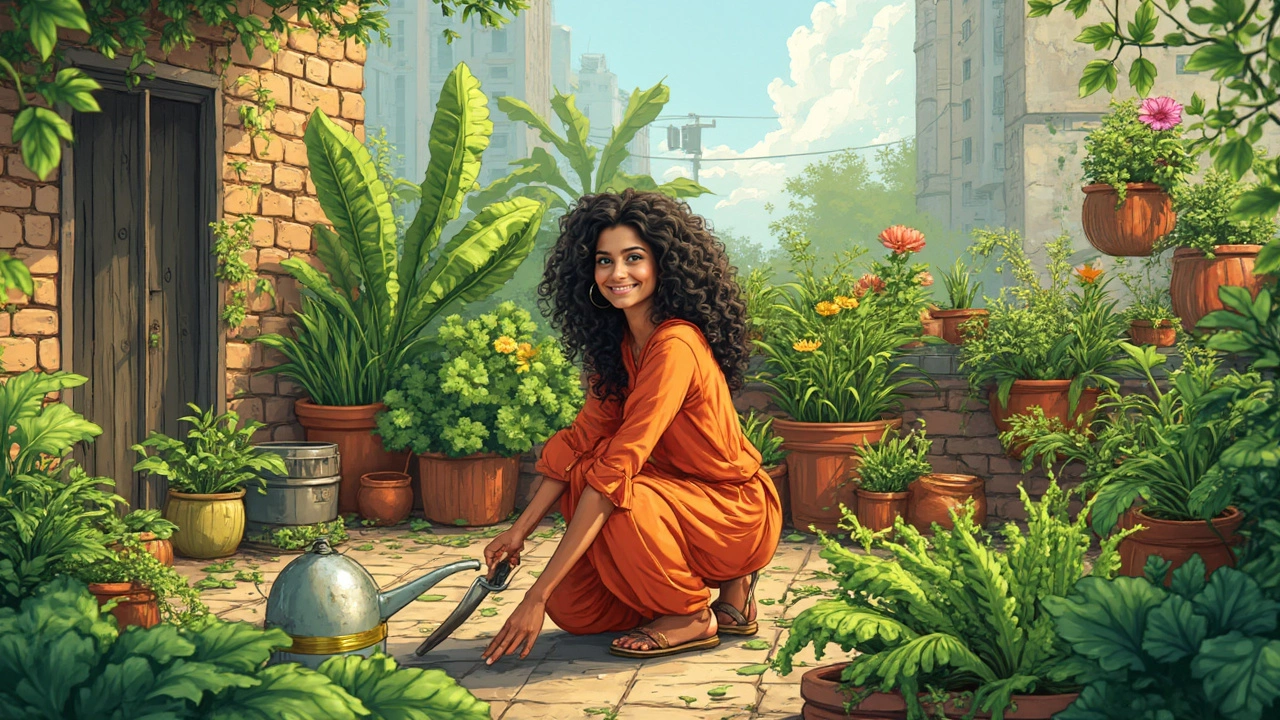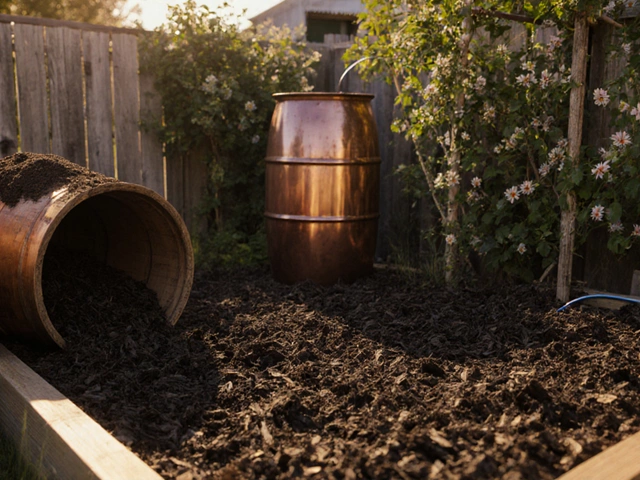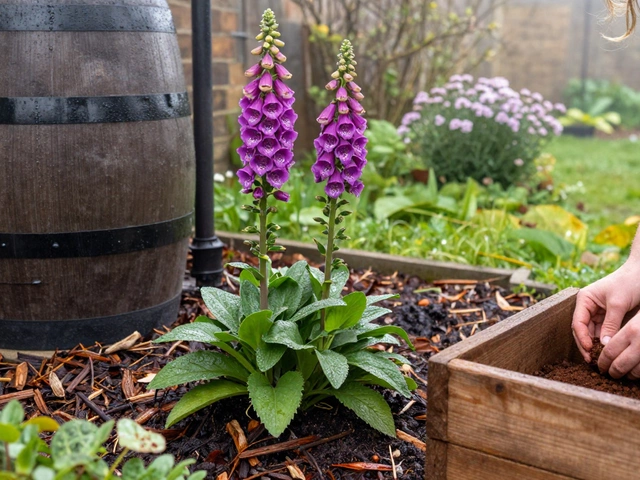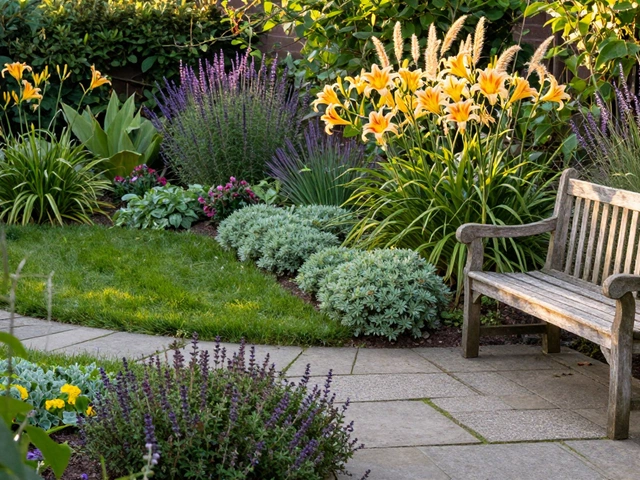Ever tried to label that friend who can't walk past a plant shop without stopping? The word 'gardener' sounds too simple, right? People often toss around names like 'plant parent,' 'horticulturist,' or even 'green thumb.' Each fits a different shade of plant obsession. But whether you grow basil in a jar or manage a veggie jungle, loving gardening connects you to a lot more than soil and seeds.
People who love gardening aren't just growing food and flowers. They shape how their homes look, what they eat, and even how they relax. Plus, when you start reusing pots, saving seeds, or composting, you step into the wider world of sustainable gardening. That's where hobbies make a real impact, both for your wallet and for the planet.
- All the Names for a Garden Lover
- The Real Benefits of Gardening Obsession
- Easy Ways to Make Your Gardening Sustainable
- Gardening Communities and Resources
All the Names for a Garden Lover
So, what do you call someone who lives for gardening? People have come up with all kinds of names over the years—some simple and some a bit more technical. The most common word is gardener, but that's just the tip of the iceberg.
If you want to get a little fancier, you’ll hear 'horticulturist.' That usually means someone who knows a lot about plants—maybe they even studied it. A 'botanist' is more science-focused, studying plants and their environments, mostly in labs or outdoors for research rather than just for fun. Then there’s 'plant parent,' a term that really caught on with younger folks and anyone who treats their houseplants like pets. And who hasn’t heard of a 'green thumb'? That’s usually someone who can get anything to grow—even stuff everyone else kills.
Some people dive deeper into the hobby and join special clubs—a 'rosarian' for rose lovers, an 'orchidophile' for those obsessed with orchids, or even a 'herbalist' if they’re growing and using medicinal or culinary herbs. The internet’s made it even easier; Facebook and Reddit are popping with groups where everyone brags about being a proud ‘plant addict.’
Check out this table breaking down some of the most common terms, who uses them, and what they actually mean:
| Term | What's it mean? | Who usually uses it? |
|---|---|---|
| Gardener | Anyone who grows plants for food or beauty | Most people |
| Plant Parent | Someone who dotes on their houseplants | Urban plant lovers, Millennials, Gen Z |
| Horticulturist | Expert or pro in plant growing and garden design | Professionals, serious hobbyists |
| Green Thumb | Someone with a knack for growing healthy plants | Friends & family, casual talk |
| Rosarian | Someone who loves and grows roses | Rose specialists |
| Orchidophile | Orchid collector/grower | Orchid club members |
| Herbalist | Grows and uses herbs for flavor or medicine | Health-conscious gardeners |
And here’s a fun fact: 62% of Americans call themselves gardeners, but only 18% know the word 'horticulturist.' That shows most people keep it simple, but there’s a whole vocabulary out there if you want to geek out.
The Real Benefits of Gardening Obsession
If you're deep into gardening, you're getting way more than just pretty flowers. This hobby gives your mind, body, and lifestyle a boost. People often ask if there's solid evidence behind the hype—there is. Here’s why a gardener lifestyle really pays off.
- Stress-buster: Digging and planting actually calm you down. According to a Dutch study, participants who gardened after a stressful task had their cortisol (stress hormone) drop faster than those who just read indoors.
- Physical workout: You burn up to 300 calories an hour raking, weeding, or planting. It’s gentler than jogging, but you still work muscles and improve flexibility.
- Cleaner meals: Growing your own food means you know exactly what’s going into it—no weird chemicals or travel miles on your tomatoes.
- More pollinators: Backyards with pollinator-friendly plants (think lavender, sunflowers, or basil flowers) draw in butterflies and bees—good for your harvest and your local ecosystem.
- Money savings: According to the National Gardening Association, a $70 investment in a vegetable garden yields about $600 in produce on average.
It’s not all talk. Check out some hard numbers in the table below.
| Benefit | Supporting Stat |
|---|---|
| Calorie Burn (per hour) | Up to 300 |
| Cortisol Reduction (study group vs. control) | 23% lower after gardening |
| Money Saved (average/season) | $530 |
| Gardeners reporting improved mood | 80% |
The perks aren’t just about you. Any gardening obsession you feed helps your home, your community, and even the planet—especially if you sneak in some sustainable habits while you're at it.
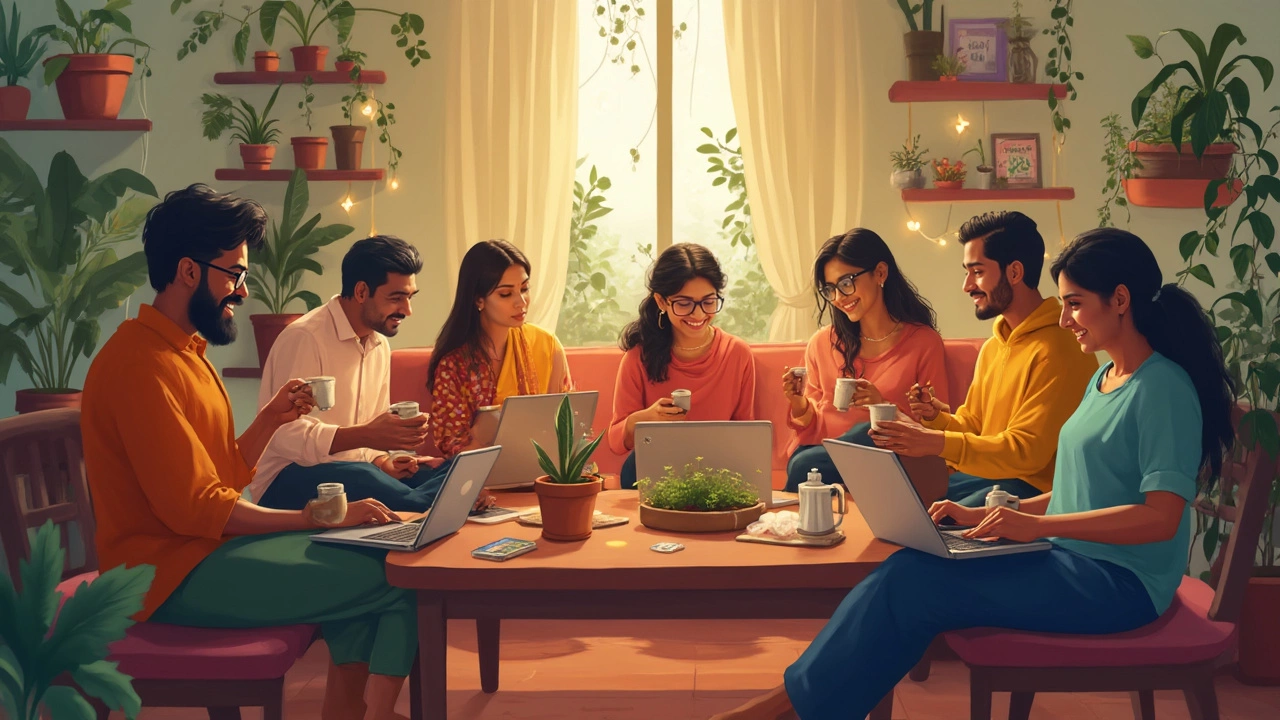
Easy Ways to Make Your Gardening Sustainable
If you want to make a real difference, sustainable gardening is the way to go. It’s not about doing everything at once; small changes stack up fast. The big idea is to work with nature instead of against it. That keeps things simple, saves money, and helps the planet.
Start with your soil. Healthy soil does a lot of the heavy lifting for you. Instead of buying chemical fertilizers, toss kitchen scraps into a compost bin. Banana peels, coffee grounds, even eggshells break down into rich, natural plant food. Composting cuts down what you send to the landfill and gives your veggies and flowers a boost.
Choose plants that actually want to live in your yard. Native plants usually need less water, less help, and fight off pests better than stuff shipped in from halfway across the world. For example, if you’re in California, try growing California poppies over thirsty roses. Your garden will be happier, and you’ll save water (and headaches) in the long run.
Think about water use, too. Setting up a simple rain barrel under your gutter can snag gallons of free water every time it rains. And mulching—just spreading bark chips, straw, or grass clippings around your plants—keeps the dirt moist, so you water less. Mulch also blocks weeds, so there’s less weeding for you. Double win.
Skip bug sprays and harsh chemicals. Instead, invite helpful bugs like ladybugs and bees by growing a variety of flowers. Crop rotation and planting garlic or marigolds near your veggies can keep pests guessing and outsmart diseases, all without reaching for a spray bottle.
Last thing—reusing and recycling in the garden saves you cash and keeps junk out of landfills. Yogurt cups make decent seed starters, old buckets turn into planters, and even worn-out jeans can line hanging baskets. It’s all about making the most of what you already have.
When you weave these steps into your routine, you’re not just another gardener. You’re building a greener space that gives back for years.
Gardening Communities and Resources
If you're serious about growing your plant skills, joining a garden community helps a ton. Places like Reddit’s r/gardening and Facebook’s gardening groups put you in touch with thousands of people who actually reply to your questions, post photos of weird bugs, and give you the lowdown on which tomato varieties survive crazy summers. There’s no judgment here—just plenty of support for total newbies and old pros alike.
For more hands-on advice, local community gardens, like those on the American Community Gardening Association map, give city dwellers a spot to dig, swap seeds, and compare mulch strategies in person. If you prefer something more official, the Cooperative Extension offices in every U.S. state offer free guides and access to local plant experts. They’re real people, not chatbots, and they'll tell you whether your houseplant is dying from too much sun or not enough water.
Don’t overlook specialized online resources. Platforms like Garden.org and RHS (Royal Horticultural Society) offer plant databases that help you figure out if your new succulent will actually survive in your zone. Garden apps like Planta and GrowIt! can remind you when to water, track your plant progress, or connect you to nearby plant swaps.
No gardener survives alone. These communities swap seeds, organize composting drives, and even plan group buys for raised beds and soil to save cash. Here’s a quick look at how many people use the top platforms:
| Platform | Active Members (2025) |
|---|---|
| Reddit r/gardening | 8.1 million |
| Facebook Gardening Groups (top 5 combined) | 4 million+ |
| Garden.org | 650,000 |
| American Community Gardening Association member gardens | 1,000+ gardens |
One more tip: look up local seed libraries. They let you borrow seeds (yes, like books) and return seeds at the end of the season—perfect for anyone on a tight budget and trying new varieties. When you join a robust gardening community, you never feel stuck alone with a failing basil plant again. That’s where the real magic happens.
If you want to geek out about gardening, don't be shy. People are more helpful than you think, and there’s always someone who’s either made your mistake already or has an easy fix ready to go.
